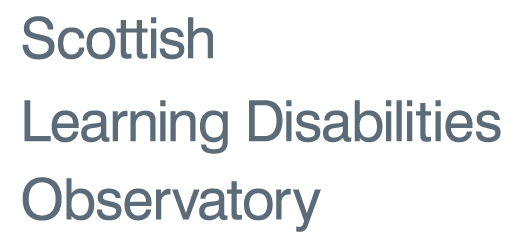Better information, better health
The first national conference for the Observatory was held on the 1st of December 2015.
Watch Clare Mills use her graphic visualisation skills to record the discussions throughout the day!

Professor Sir Ken Calman, Chancellor of Glasgow University welcomed delegates and underlined the importance of improving our understanding of the health and health inequalities experienced by people with learning disabilities through the provision of data.
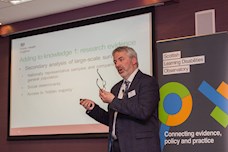
Professor Chris Hatton, Professor of Psychology, Health and Social Care and Co-director of Improving Health and Lives talked about health surveillance and people with learning disabilities, giving an overview of work happening in the English context.
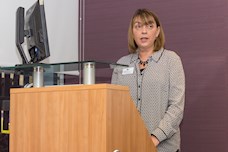
Linda Allan, Honorary Clinical Associate Professor and Professional Advisor to the Learning Disabilities Policy Care, Support & Rights Division at the Scottish Government delivered a presentation on behalf of Jamie Hepburn, Minister for Sport, Health Improvement and Mental Health which underlined the Scottish Government's ongoing commitment to working with strategic delivery partners to address the inequalities experienced by people with learning disabilities.

Professor Mike Kerr, Clinical Professor at the Institute of Medicine and Clinical Neurosciences at Cardiff University told delegates about the importance of data in understanding health inequalities of people with learning disabilities in Wales. Mike gave an overview of the roll out of health checks for people with learning disabilities across the Welsh regions.
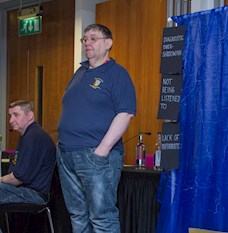
The Good Life Group, are self advocates from West Dunbartonshire, who deliver training across Scotland to health and social care professionals using forum theatre. The group designed a drama to help the audience to understand the things that affect the health of people with learning disabilities.
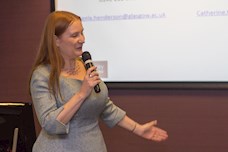
After lunch Professor Anna Cooper, Director of the new Observatory, outlined the extent of the health inequalities experienced by people with learning disabilities in Scotland presenting evidence about the high rates of comorbidities and polypharmacy experienced by people in this population and the challenge of data visibility across Scotland’s excellent administrative data resources.
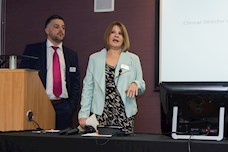
Three presentations were delivered which outlined the potential contribution that primary care data can make to building understanding of the health and health care experienced by people with learning disabilities and people with autism. In these presentations we heard about work that is going on nationally through the SPIRE learning disabilities data project and about how primary care data has been used in Lothian and Ayshire & Arran health boards to build a better understanding of the health of people with learning disabilities and to support local service planning.

Delegates were then asked to participate in discussions around aspects of health and health care are most important in addressing health inequalities experienced by people with learning disabilities? We also asked delegates to discuss their communication preferences.
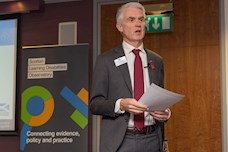
Finally the session was brought to a close with remarks from our afternoon chair, Chris Creegan, Chief Executive of the Scottish Commission for Learning Disability, who drew together the main themes of the day.
